Interview by Federico Mura
Photos by Ken Etzel
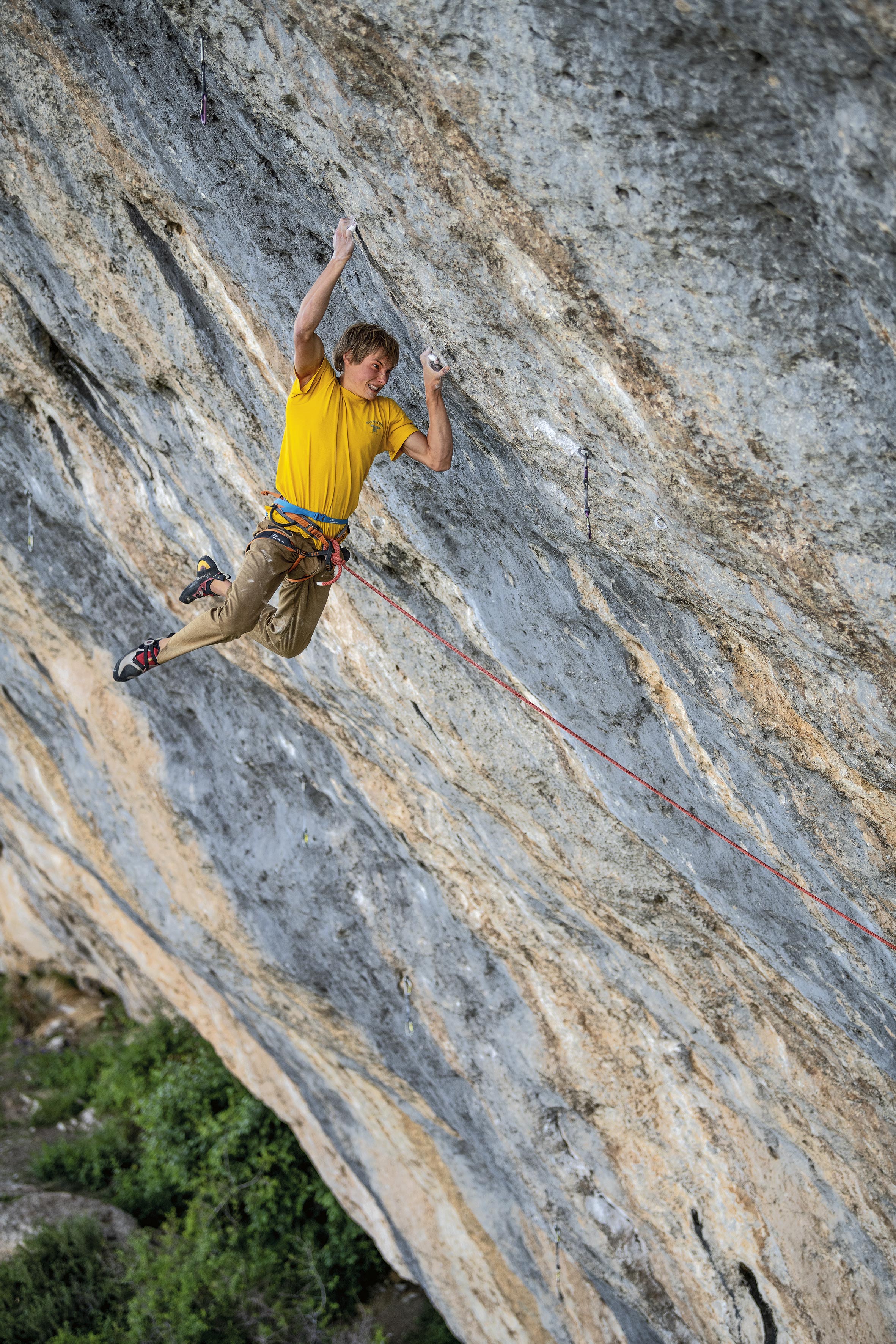
Interview by Federico Mura
Photos by Ken Etzel
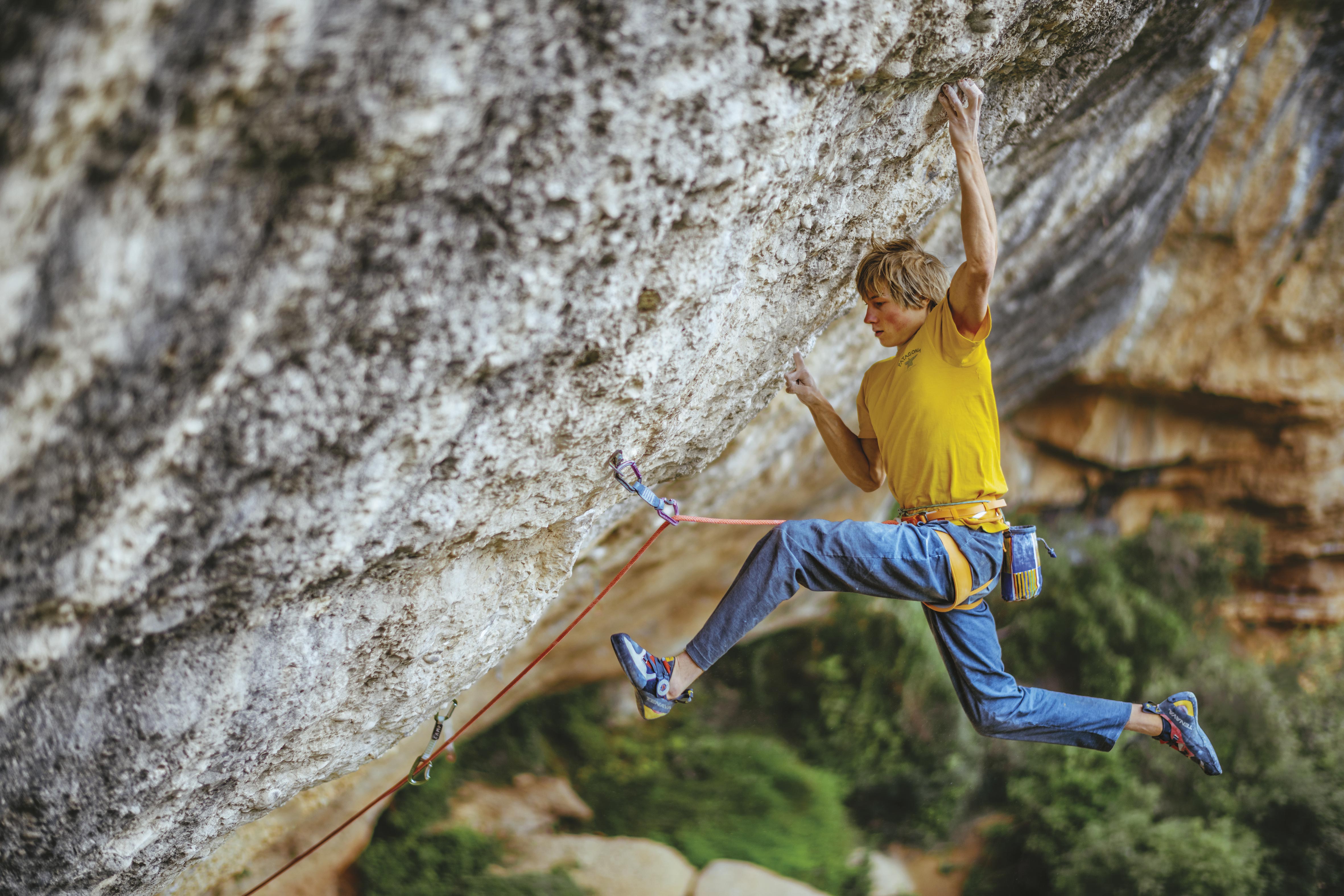
I enter the Kletterzentrum, Innsbruck’s impressive climbing gym surrounded by the Tyrolean Alps. The atmosphere is strange: even if it’s not my first time here, every time I’m amazed that the many people here seem not to realize the incredible beauty of this place, both for the infrastructure and for for the landscape that can be seen beyond the windows.
I reach the reception desk accompanied by Matts, Patagonia Sports Marketing Guru. I ask him how big our group of journalists will be. “Not so big actually,” he replies with his British accent. We enter the lobby, and if it weren’t for the five-plus-size dimensions, the atmosphere is exactly the same as in my gym close to my home in Turin. With only one difference: under the wall of speed climbing there is one of the strongest climbers in the world. I approach him and introduce myself to Alex and his girlfriend Jenya, we chat about the speed climbing cast iron and how easy it is to get a fine by only parking in the streets of Innsbruck.
If there is one thing I like about the climbing world it is how relaxed the community is. Talking with Alex was exactly like hanging around with my best climbing buddy.
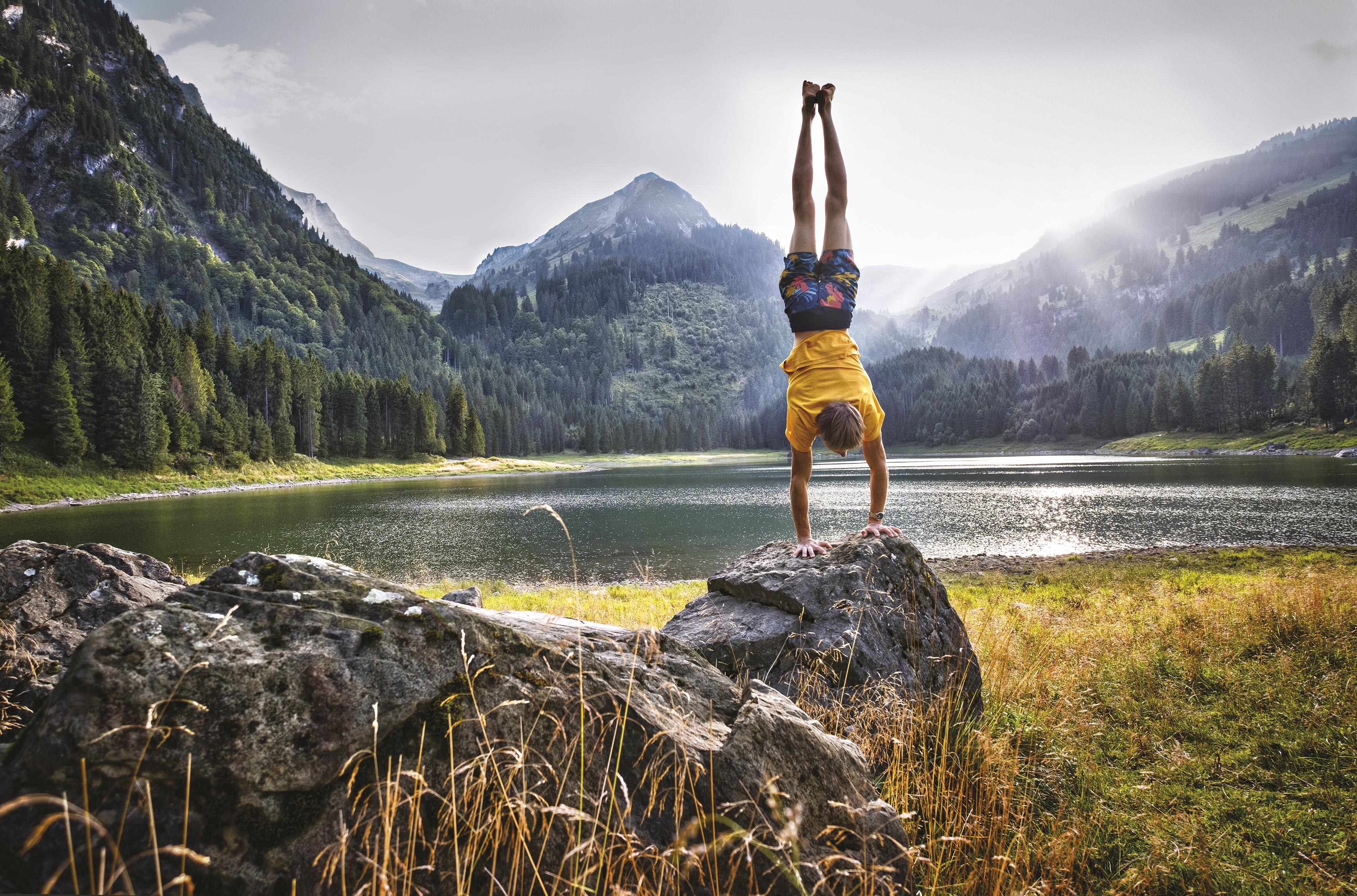
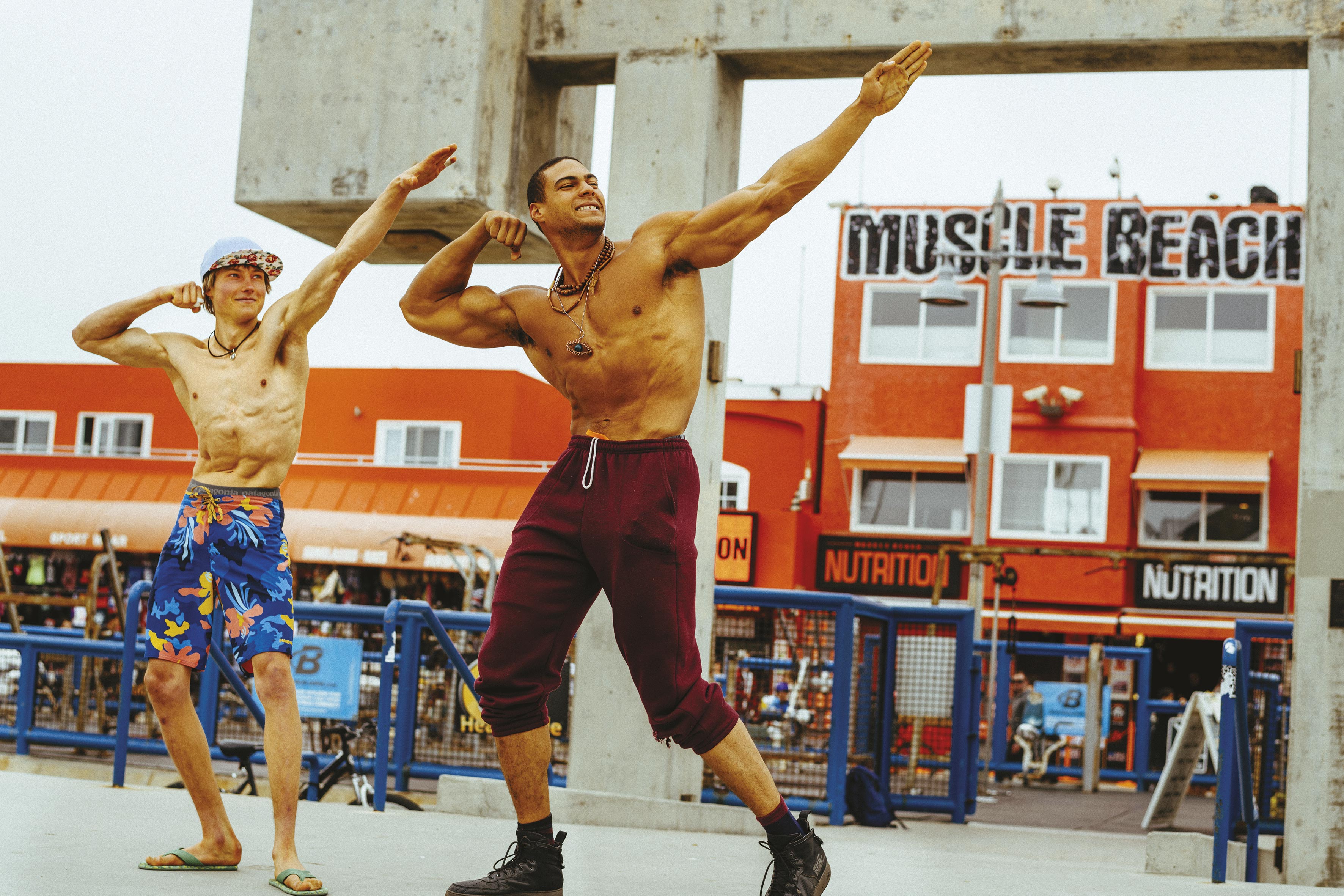
I warm up a bit with a slightly confused mind: where is the horde of journalists I was expecting? Alex Megos is training with his girlfriend, and then there’s me. This was not specified in the agency’s email… But that’s okay, of course it’s okay!
I enter the bouldering area and meet nothing less than Norbert Sandner, along with the legendary Wolfgang Güllich, one of the founders of the Rotpunkt philosophy. I could say that all the people here in the gym working on a project, in one way or another, owe it to him.
With his arm just healed from an operation and his fitness certainly no longer at the levels of when he was twenty years old, he climbs incredibly high grades with great style in front of my eyes. Everything is quickly explained when he tells me about his climbs with Wolfgang and the seasons spent with him studying new routes.
Once I warm up my forearms I add myself to the group and after a few minutes I am still amazed at how normal the situation looks. One thing that strikes me is how Alex is just a guy who wants to have fun, being an internationally renowned champion seems to be only a consequence of his ability to climb, and above all something he likes a lot. All his irony comes out during the presentation of the Rotpunkt movie the same evening. The audience laughs hard for most of the time because of all the funny jokes between Alex and Norbert.
Very strong, as we all know, and very humble, so humble to help climbing a guy known just a couple of hours before on a sweaty 6b+
Sitting on the steps of the lobby facing the walls of colored holds of the Kletterzentrum I activated my best journalist mode, although occasionally interrupted by some girls looking for autographs, and asked him a few questions.
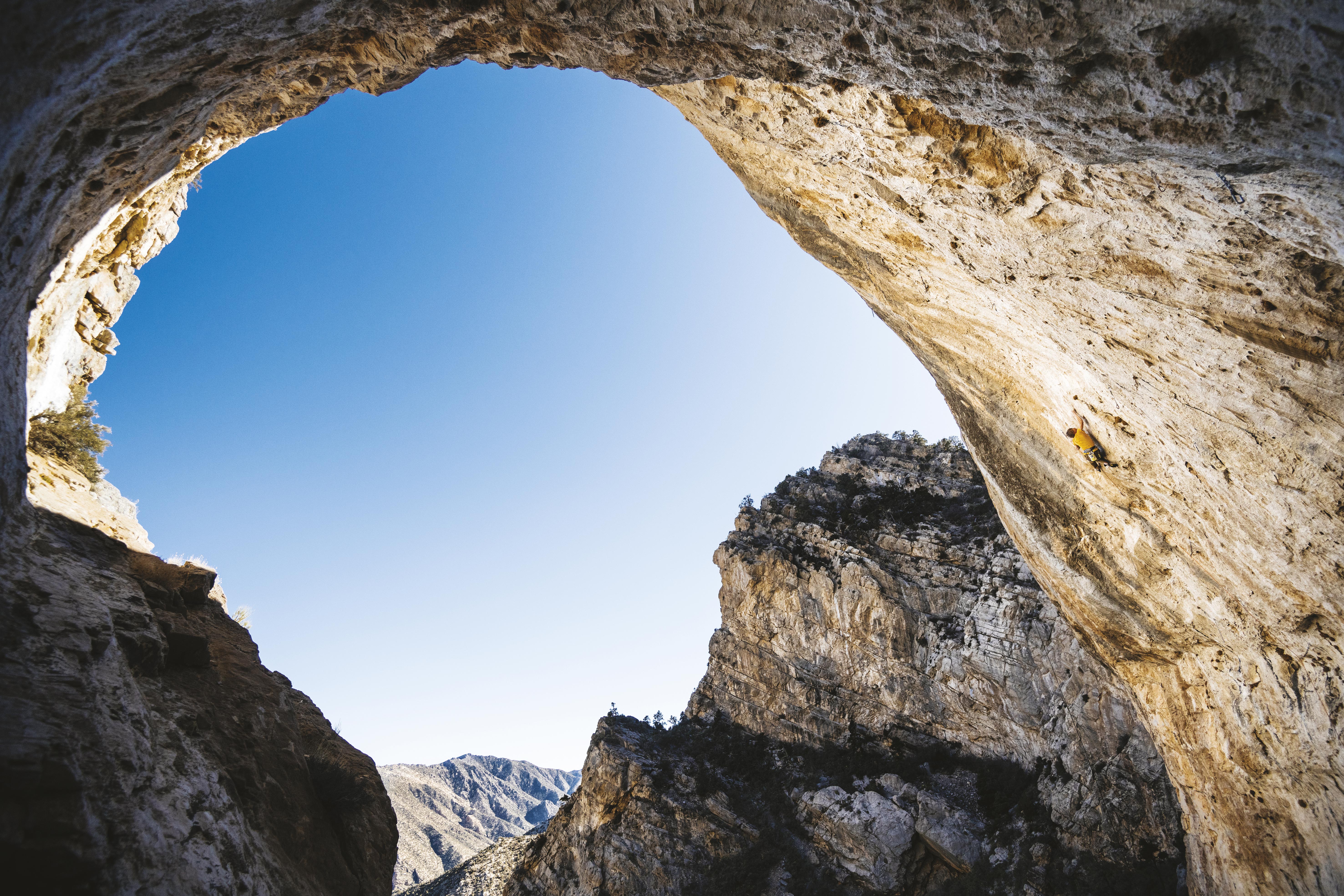
Your climbing style is impressive; often to reach a hold you stay on the wall thanks to the strength of your fingers alone, and for this reason many people do not hesitate to call you “The Machine”, but how important is the psychological component of climbing for you?
In my training the psychological part is certainly very important, perhaps more than the physical one. When climbing hard you always have to be focused and keep motivation high. Especially when you’re in front of a project, your brain needs to be 100% focused on it. Very often the psychological part for me is much more difficult to manage than the physical one.
In tonight‘s film, you’ve been defined as Wolfgang Güllich’s successor. We are talking about the guy who revolutionized training and preparation in order to push his limits even higher. What is your feeling about physical preparation?
I personally have a lot of fun with muscle strengthening training. If you train hard, then you can climb hard. I use it as an excuse to have even more fun on the wall. It’s part of the game. However, you must not forget the other two parts of climbing: as we have said before, the psychological part, and the technique. One of the secrets for climbing hard is to balance your workouts by considering these three aspects of climbing. As far as I am concerned, in the past I have been too focused on physical training, and only in the last few years I have learned to manage all the parts of the training in this way achieving decidedly more satisfactory performances.
And what aspects related to Wolfgang Güllich do you like best and would you like to apply to yourself?
He was a visionary. And already thirty years ago he was thinking of pushing performance to the maximum, trying to raise the grades further. Whenever he managed to climb a new grade he didn’t consider it only as a goal, but used it as a starting point for the next level. It was a constant challenge to himself. This is what made him a legend, climbing the first 8c of the history, and a few years after the first 9a. This is the philosophy I try to draw from him and I try to make mine.
Have you ever thought of being the next one to raise the bar?
Honestly no, I focus on my limit and the most important part of climbing: fun. I only think about climbing to the limit of my possibilities, and about climbing what I like the most.
If you think too much beyond what your level is, you will end up not having fun anymore.
Climbing hard I realized that climbing is 99% failure, and only 1% success. But that 1% is what keeps you training, climbing and having fun.
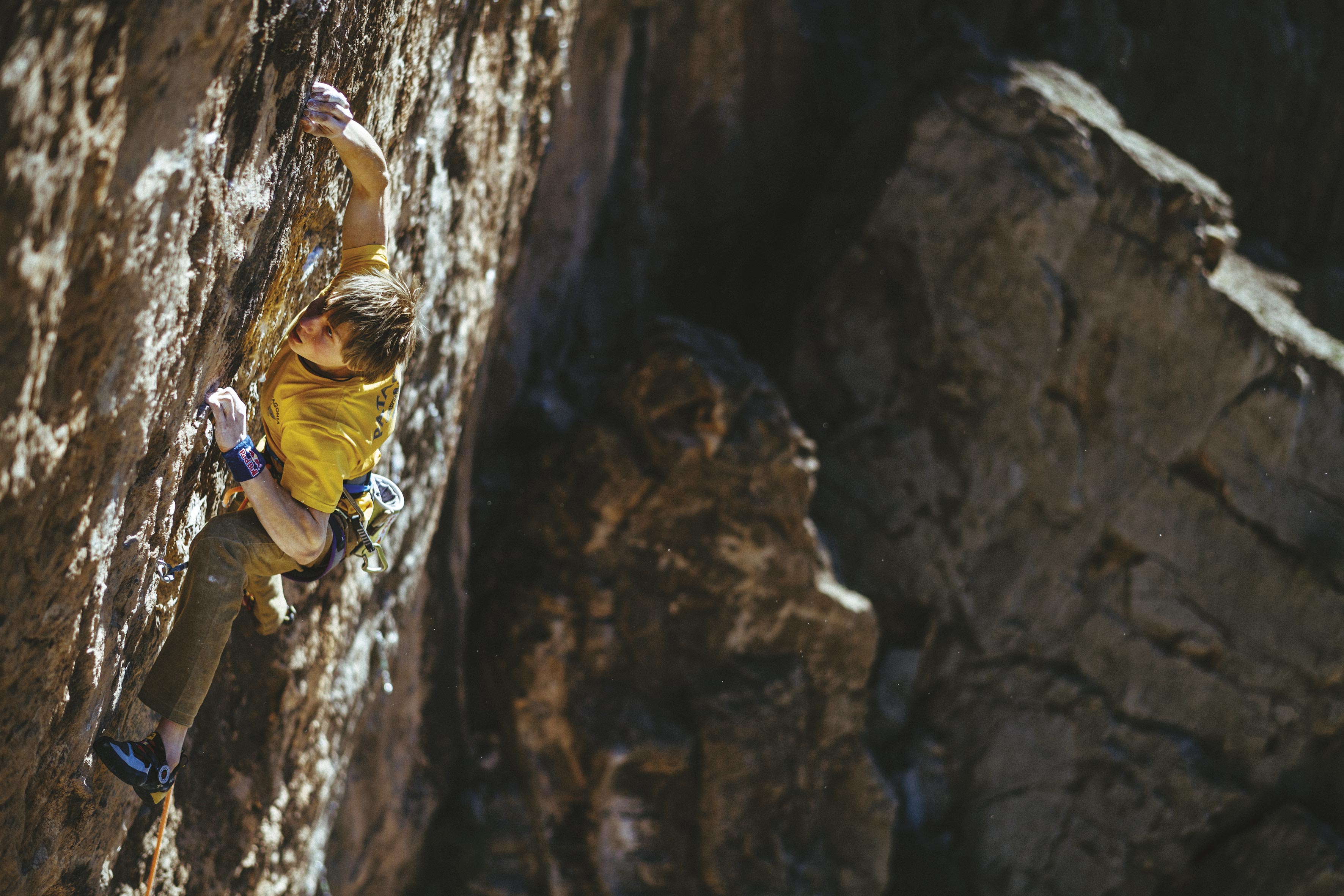
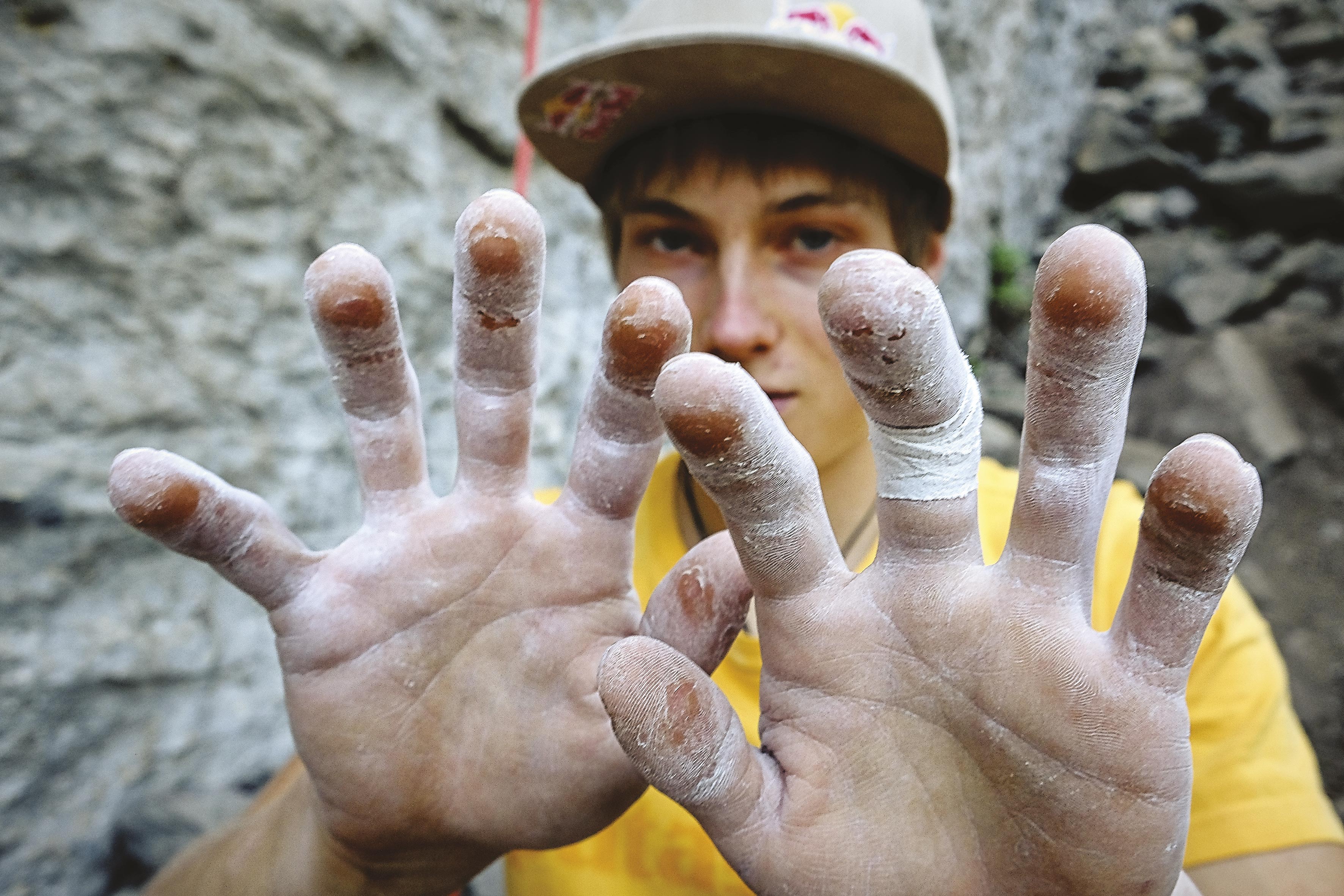
In that 99% of failure, the challenge is you against the rock or you against yourself?
The challenge is mainly against myself. When you give up one route the reasons are mainly two: either you are physically too weak to deal with it, or you have lost motivation. When I climb I have to feel the wall, and I don’t see in the rock a component of challenge, rather of collaboration. The rock and I must become one.
What about competitions?
As a kid I took part in many competitions, but then I focused on outdoor climbing. In recent years I have always climbed to try new types of rock, and working on increasingly interesting projects. From next year, however, I will start again with indoor competitions due to the Tokyo 2020 Olympics.
Indoor or outdoor?
I grew up climbing at the crag, and for this reason my favorite style is definitely the outdoor one. As you will see in Rotpunkt, in recent times I have faced with different challenges, such as my highest grade, the 9b+ of Perfecto Mundo. I have never confronted myself with a project that took so much time and energy, but it was a unique experience of sharing and collaboration with Stefano Ghisolfi, my trainer Ludwig Korb and with all the other members of the team who were with me.
What aspects of Patagonia do you like the most?
The whole brand is great. I’ve been sponsored by them for a long time, since I was 16 years old. I really like Patagonia’s approach to the environmental problem. They are using a great deal of energy not only to create a production system that is as much sustainable as possible with several tangible projects like Worn Wear, but they are also carrying out various communication campaigns that are aimed at raising awareness among as many people as possible on this issue. One of the reasons I like it is precisely this: it has made it clear to many people, including myself, that we have to change something in our lifestyle.
Something to add?
I think that… today we trained damn hard, right ?! We’re pumped, we look good, and we’re ready for next time!
Share this Feature